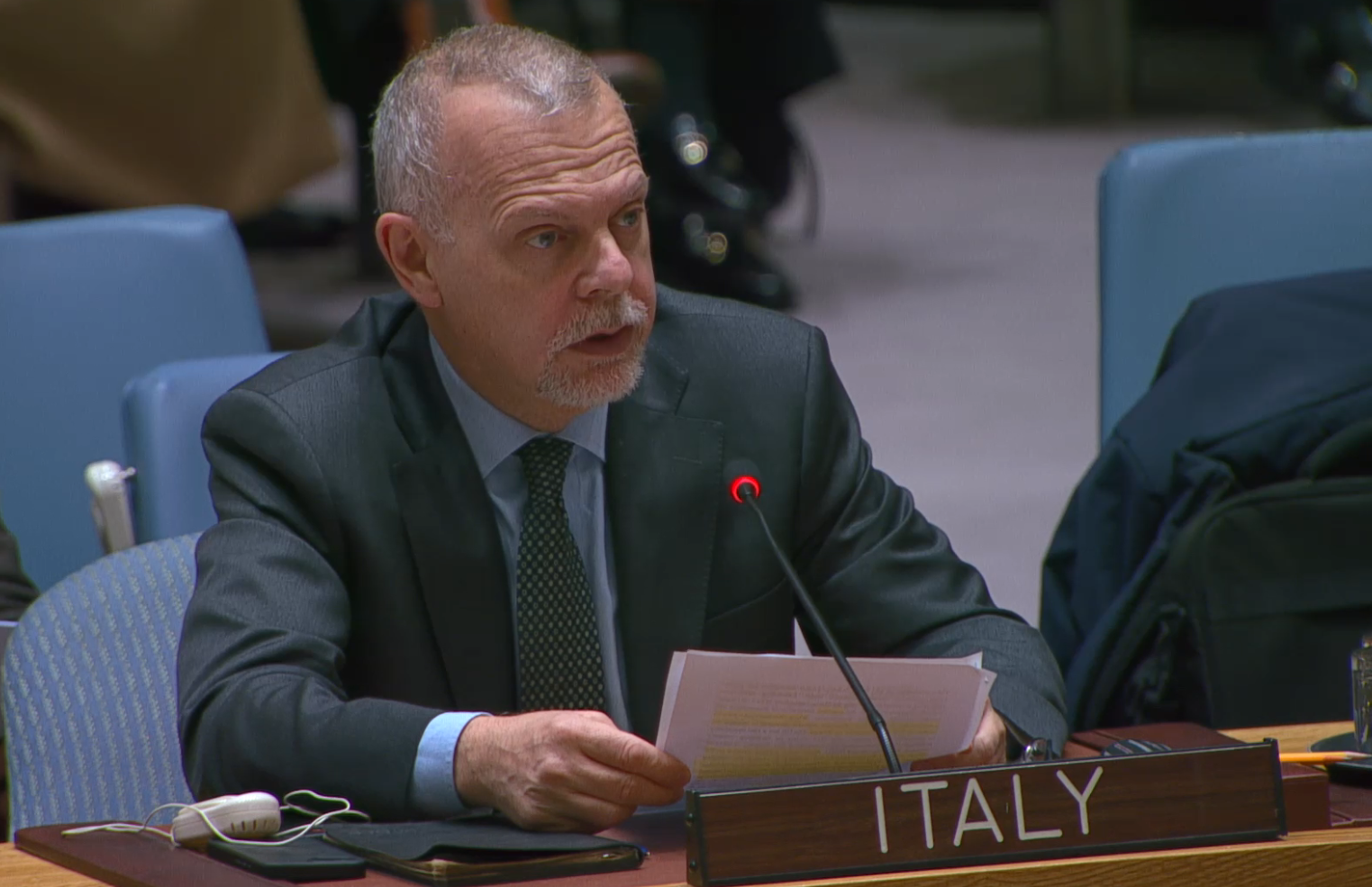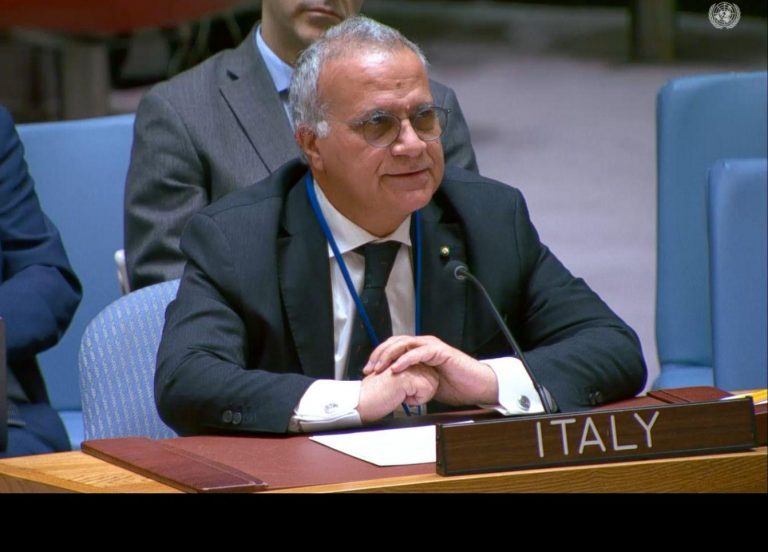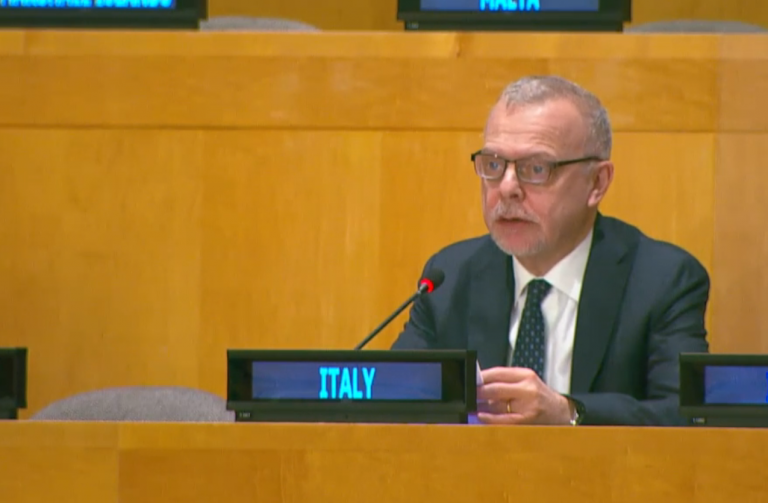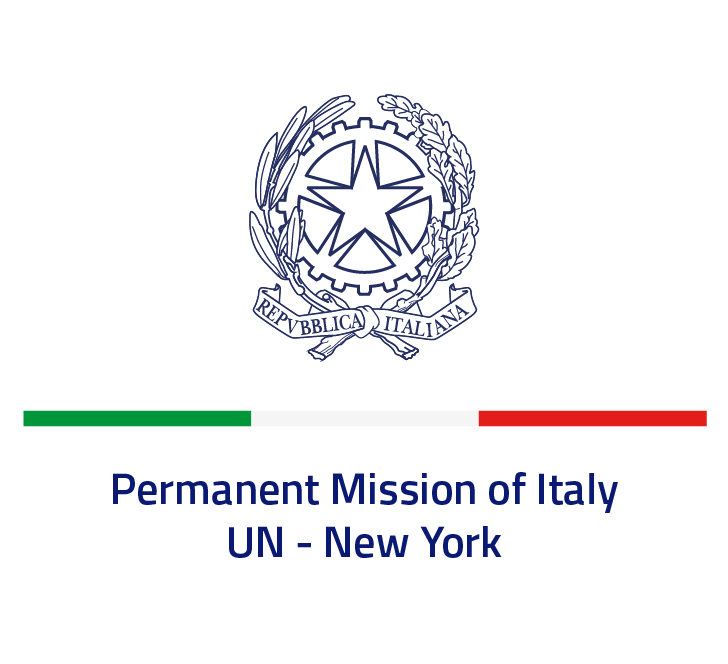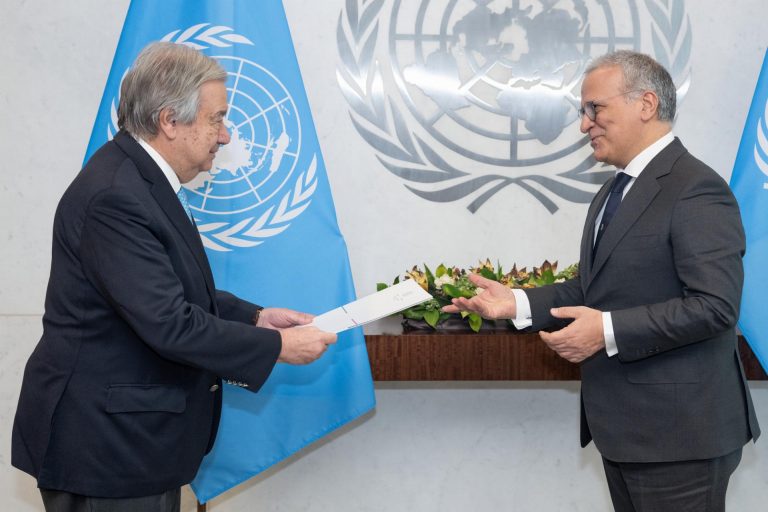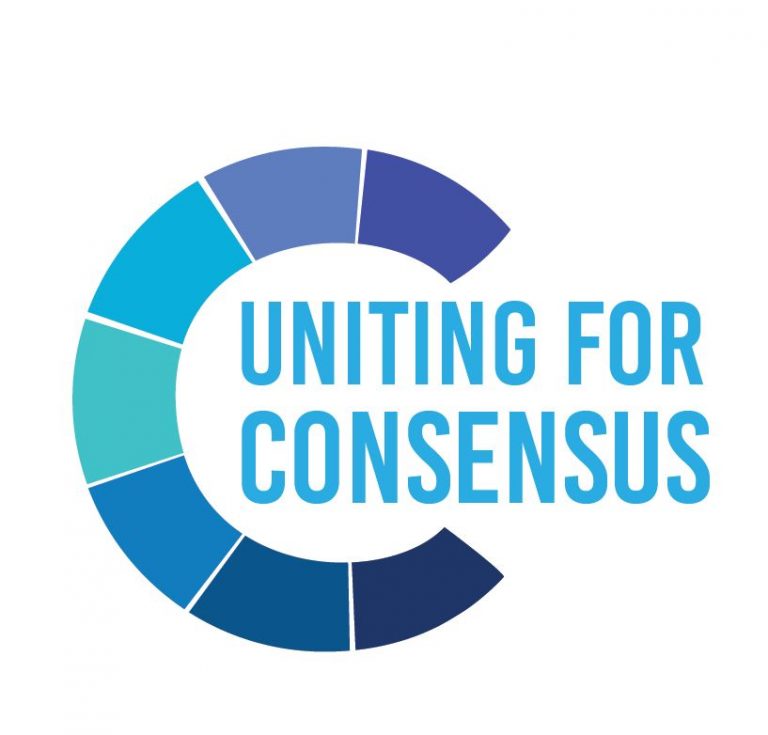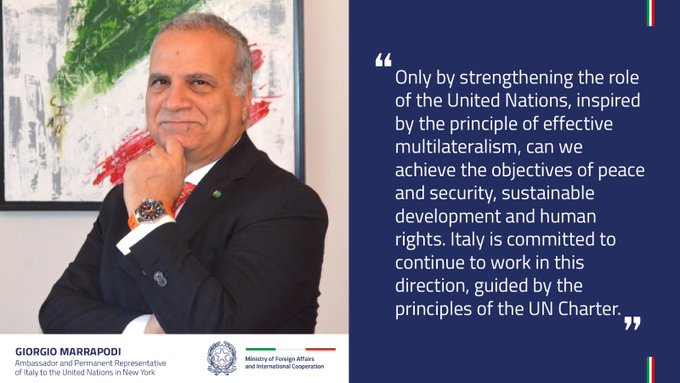Mr Chair
Italy aligns itself with the statement delivered by the EU and I would like to add a few considerations on our national capacity.
Amid an increasingly tense geopolitical landscape, the proliferation of illicit small arms and light weapons and their ammunition poses a complex challenge, fueling conflicts, terrorism, organized crime, and human rights violations. Addressing this issue requires integrating disarmament with development policies, particularly in post-conflict regions where SALW hinder reconstruction and socio-economic recovery. SDG 16 advocates for a comprehensive approach that links security, human rights, and development. In this context, disarmament policies should be embedded within violence prevention and reconstruction initiatives, tailored to local conditions. Effective coordination among UN agencies, such as UNDP and UNODA, is essential to harmonizing security and development strategies.
The spread of SALW has severe repercussions on a country’s social and economic stability. International instruments, including the UN Programme of Action to Prevent, Combat, and Eradicate the Illicit Trade in SALW, the UN Convention Against Transnational Organized Crime (Palermo Convention), and the OSCE Protocol, play a pivotal role in curbing proliferation and enhancing control measures. These initiatives are closely linked to poverty reduction, youth employment, and community development programs. In conflict settings, the presence of light weapons exacerbates violence, fuels organized crime, and facilitates human trafficking and militia control. In post-conflict scenarios, disarmament programs should be integrated with social reconciliation efforts and the reintegration of former combatants, providing economic incentives and psychological support.
The proliferation of SALW exacerbates gender inequalities and gender-based violence, including domestic abuse. Controlling illicit arms trafficking is critical to achieving the SDGs, particularly SDG 5 on Gender Equality. Despite progress, the practical integration of disarmament and gender equality remains insufficient. The UN has a vital opportunity to strengthen collaboration with civil society by increasing women’s participation in disarmament decision-making and fostering continuous dialogue with activists and NGOs. Additionally, funding research on the effects of SALW on women and children is crucial for updating international legislation and crafting targeted disarmament policies.
UN Security Council Resolution 1325 underscores the role of women in conflict prevention and peacebuilding, emphasizing the need to combat illicit arms trafficking and recognize women’s contributions to security and stability.
Italy actively supports disarmament and gender-sensitive security policies through its Fourth National Action Plan on Women, Peace, and Security and is preparing to launch the Fifth National Action Plan. Collaboration with the Committee for Human Rights (CIDU) and civil society organizations remains central to developing policies that address the complexities of gender equality in disarmament. Italy also upholds the UN Programme of Action (PoA) as a key instrument in combating illicit SALW proliferation, leveraging its flexibility to align with international initiatives such as the Arms Trade Treaty and the International Tracing Instrument (ITI). These efforts enhance transparency and cooperation in arms control.
Recognizing the role of emerging technologies in weapons regulation, Italy stresses the importance of adapting legislation to address new security challenges and supports complementary measures like the UN Convention against Transnational Organized Crime to prevent illicit arms trafficking and bolster international cooperation against organized crime.
I thank you.







